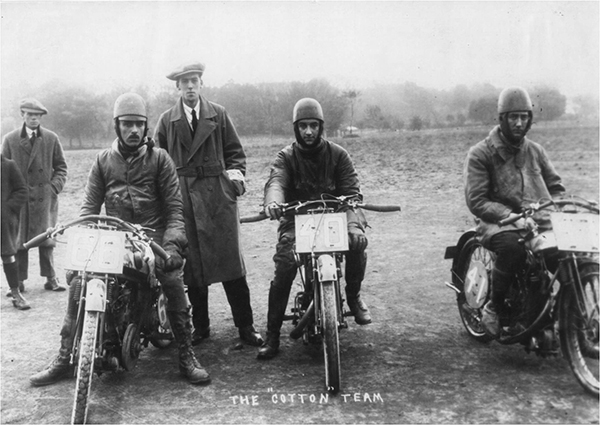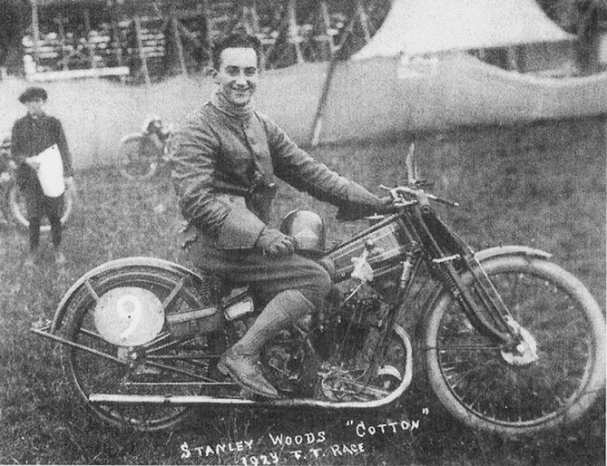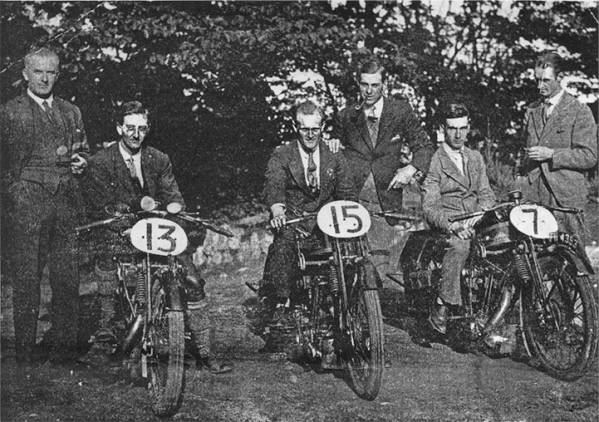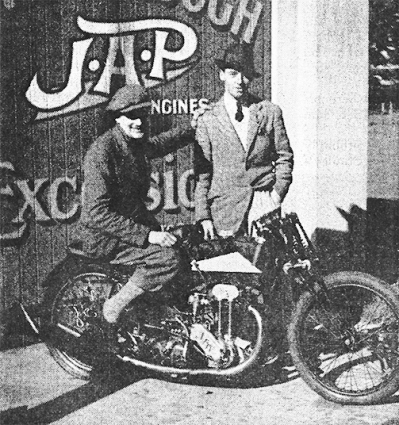The Cotton Motorcycle Company of Gloucester was founded in 1919 by Frank Willoughby Cotton at 11a Bristol Road, Gloucester and Cotton’s first display at the annual Olympia show was in the fall of 1920. Production was limited for the first couple years but success of Cotton owners in speed trials influenced the firm to enter machines in the Isle of Man Junior T.T. in 1922 when Stanley Woods finished fifth.

Woods’ Blackburne engine Cotton won in 1923, and the publicity increased sales six-fold. This led to the company moving to the larger Vulcan Works in Quay Street.

(For those wanting to know more about the life and times of Stanley Woods: 1992 BBC NI documentary)
T.T. success continued and in the 1926 Lightweight T.T., Cottons (“the Bobbins”) took the first three places.

Paddy Johnston also won the Brooklands 200 mile G.P. Sponsorship and increased sales resulted from the T.T. successes with production of vintage Blackburne models reaching 1000 a year. Bikes were regularly seen being pushed over Gloucester Cross to the two city railway stations for distribution both nationally and overseas. Gloucestershire County Council had eight Cottons for their Divisional Road Foremen with a ninth machine as a spare.
The Cotton design changed little in the pre-war era between 1920 and 1939. However, as the 1930s wore on, sales started to slow and success came less often. One last major success was when 12 World records for speed and distance were achieved by Eric Fernihough and Charles Mortimer on a specially prepared 250cc Cotton – J.A.P on 11 Oct 1935 at Brooklands. The 75th anniversary of this special event was hosted by the Cotton Owners and Enthusiasts Club.

When World War II broke out in 1939, Cotton was prevented from making further models for private use, but the expected Ministry contract did not materialize and Bill Cotton liquidated the company in 1940. Shortly thereafter, Cotton received the Ministry contract so Cottons continued to be produced in small numbers and Bill Cotton kept the company alive post-war mainly by refurbishing older Cottons for resale.

